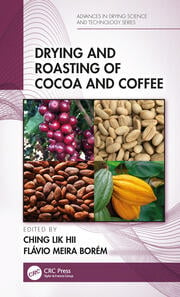ABSTRACT
The International Cocoa 90Organization (ICCO) hosted the First World Cocoa Conference in Abidjan, Côte d’Ivoire in November, 2012. The aim of this conference was to build on the previous two successful roundtable discussions on a sustainable cocoa economy and provide a roadmap toward achieving a sustainable world cocoa economy. Some of the strategic challenges facing the cocoa value chain were outlined with recommended actions for addressing them and the responsibilities of the stakeholders in the cocoa sector at national and regional and international levels. This was encapsulated in the “Abidjan Declaration” (ICCO, 2012). Arising from this were a number of “Global Cocoa Agenda Actions,” one key action identified was to “Improve cocoa quality by better communication of industry needs, postharvest processing and quality assessment.” Realizing the Global Cocoa Agenda relies on secure partnerships built at all levels of the cocoa supply chain between origin country governments and local authorities with international agencies. All these players must now work together to address the complex challenge of achieving a sustainable cocoa economy as outlined in the Global Cocoa Agenda. Taking cues from what has happened in the specialty coffee sector and in other commodities, the approaches taken now must allow cocoa growing communities to sustainably improve their livelihoods and well-being, while producing cocoa in the quantity and quality needed by the cocoa and chocolate industry to manufacture products 91for satisfying the requirements of a new generation of very informed consumers.


